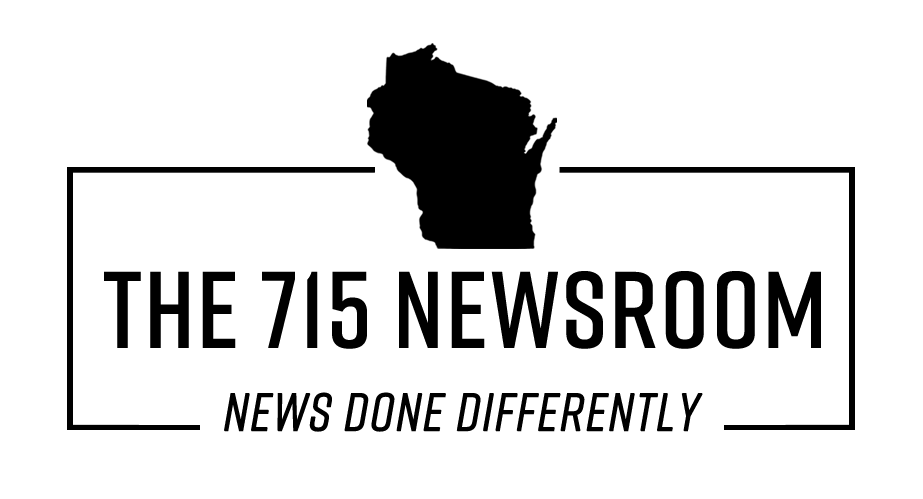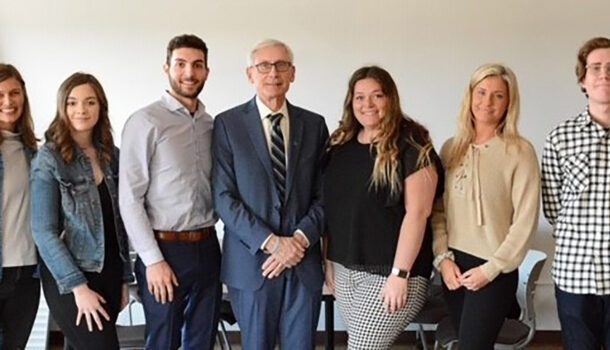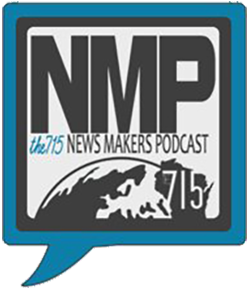From left, UW-Stout Fostering Success students Kate McCraig, Lisa Driver, Cameron Hunter, Katie Gordon, Olivia Johnston and Adam Warner meet with Gov. Tony Evers during his 2020 visit to campus.
A groundbreaking program at University of Wisconsin-Stout that helps former foster care youth has been awarded state funding.
Fostering Success recently was approved to receive $70,000 this fiscal year, a major boost for a program that has relied largely on donations and community grants to support students who have been in foster care or were orphaned or homeless.
The program has tripled in size, from 15 to 45 students, since 2018. Thus, the timing of the state aid couldn’t be better, said Angie Ruppe, director of TRIO Student Support Services and Fostering Success.
“We received the maximum award possible, which is exciting,” Ruppe said. “This funding was imperative to grow the program; we were restricted in growth until we received some dedicated funding.”
The 2021-23 state budget included a new $750,000 allocation for UW System schools with similar programs, $250,000 the first year and $500,000 the second year.
Universities then applied for the funding, with a maximum $20,000 available the first year and $50,000 the second year. With the timing of the awards, both amounts will be awarded at once.
Even better news is that UW-Stout will be eligible for the $50,000 annually, providing it meets performance outcomes and metrics, allowing the program to plan for growth and improvements.
The UW-Stout program, which began in 2013, was the first in the UW System.
Fostering Success students at UW-Stout helped push for the increased funding, including meeting with Gov. Tony Evers when he visited campus early in 2020.
“We owe a big thank you to our Fostering Success students for this funding. It is a result, in part, of the years of work in advocacy and education by them,” Ruppe said.
“They put forth the effort to ensure the sustainability and growth of this program because they experienced the positive impact. Students served as professional conference presenters and panelists, participated in state organizations such as Wisconsin’s Youth Advisory Council and shared their personal experiences with state leadership and decision-makers about the barriers to college access,” she added.


